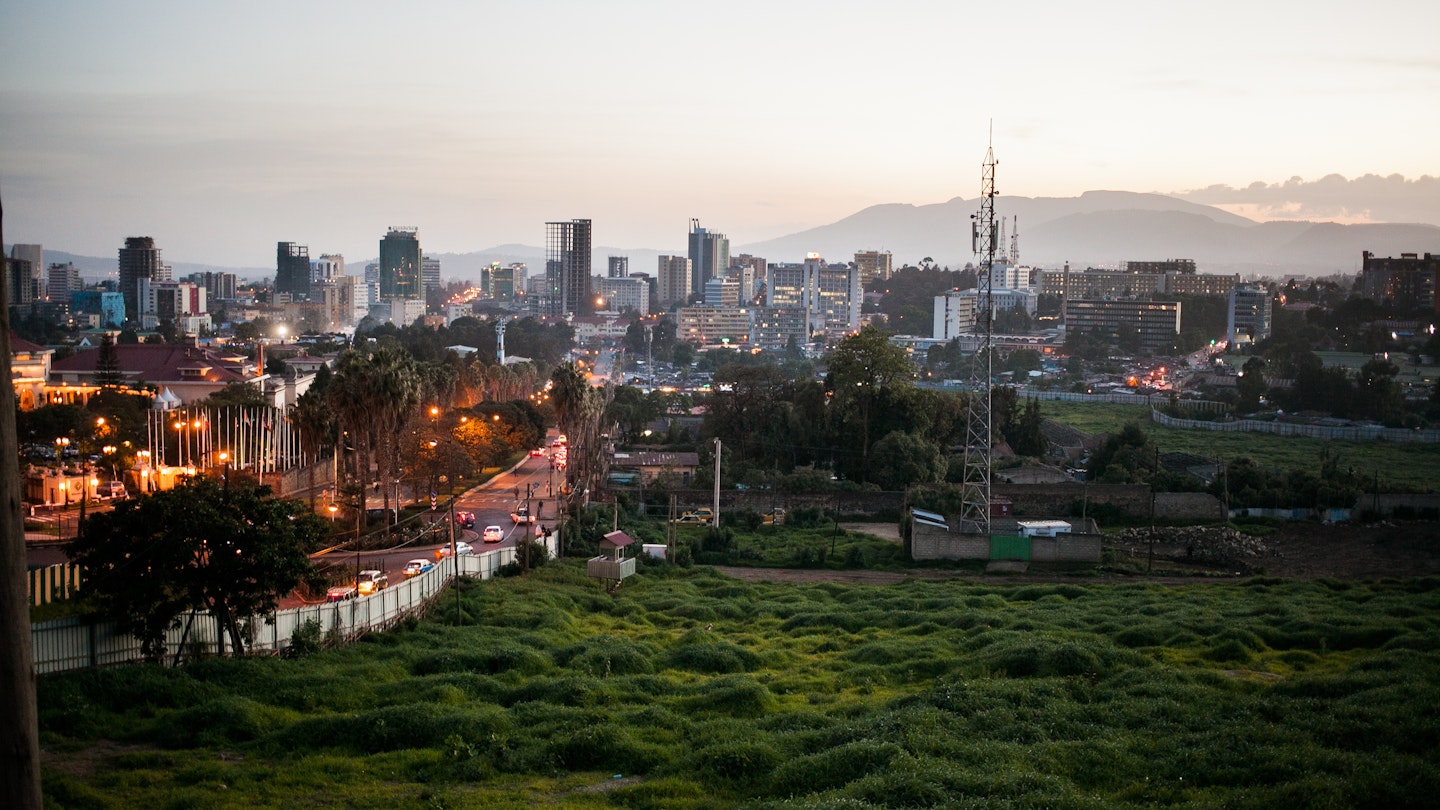Summary

The Uniqueness of Ethiopian Cuisine
The exceptional characteristic of Ethiopian food is its unparalleled nature; no other culinary tradition in the world compares. Traditional cooking here combines distinctive spice blends to achieve singular flavors: some fiery, others rich and savory. Spices serve as essential components in many variations of Ethiopian wat (a dish that lies between a stew and a curry) traditionally served with a flat, spongy bread known as injera.
Why Addis Ababa is Ideal for Ethiopian Cuisine
Ethiopian restaurants are globally prevalent, yet few can rival the culinary offerings found in Addis Ababa, the vibrant capital of Ethiopia. Ingredients are predominantly sourced locally, with meat obtaining its freshness from recently slaughtered livestock. In this locale, mass production is absent, and each dish is prepared to order. Consequently, Addis Ababa emerges as the prime destination in the country to experience authentic Ethiopian cuisine. Below are five exemplary establishments where visitors can immerse themselves in the local dining scene.

Oda Cultural Restaurant and Cafe
Located within the Oromo Cultural Center, Oda Restaurant and Cafe is renowned, having been featured in Anthony Bourdain’s Ethiopia episode of No Reservations. The Oromo people, one of the largest ethnic groups in Eastern Africa, are represented through the culinary offerings at this restaurant. The establishment features intricately carved pinewood furniture and traditional fabric drapery. Fundamental components like injera made from tikur teff (a nutritious black grain), spiced butter, and beso (roasted and ground barley) embody Oromo cuisine. A signature dish, chumbo, incorporates thick-baked black teff topped with yogurt, cheese, and spiced butter, resembling a cake. Buna qalaa (roasted coffee dipped in butter) complements the meal with enriched flavors. The Oromo Cultural Center is conveniently located near the National Stadium.
Tikus Shiro
Positioned within the bustling vicinity of the Lideta condominiums, Tikus Shiro offers an authentic local dining experience, specializing as a shiro bet (shiro house). The name itself reveals its specialty: delightful shiro, a chickpea or bean flour stew accompanied by injera. While shiro can be found in numerous Ethiopian restaurants, the notable ‘half-half’ option available here allows patrons to select two dishes from the menu for a half portion of each. Noteworthy selections include bozena shiro (shiro stew with meat), misir be kuanta (lentils with dried meat), gomen (Ethiopian cabbage), and timatim kurt (a spicy tomato salad served raw or cooked). Diners are encouraged to enjoy their selections in the serene courtyard garden, providing respite from the city’s heat. After dining, a robust cup of freshly brewed Ethiopian coffee or a glass of homemade tej (honey wine) completes the experience.

Chane’s Restaurant
Located in the Cazanches district amidst several preferred chain hotels, Chane’s Restaurant serves authentic Ethiopian cuisine in a historic dwelling previously owned by a military figure. This establishment preserves the essence of 19th-century heritage through elegant artifacts and vintage black-and-white photographs featuring royal figures and foreign dignitaries. The kitchen emanates aromas of traditional Ethiopian fare, rooted in the famed chef Chanyalew Mekonen’s (popularly known as Chane) culinary repertoire. Having worked at the German Embassy and for the Ethiopian Emperor, Chane established this restaurant to pass down his legacy. Though he passed away in January 2017, his wife and son continue to uphold the family tradition in the kitchen. The restaurant provides a carefully curated menu, consisting of many dishes originating from Chane’s own innovations.
A visit to this restaurant would be incomplete without sampling Ethiopia’s signature dish, doro wat, a spicy chicken stew ideally paired with injera and mild goat cheese. On traditional fasting days—Wednesdays and Fridays—shiro wat, a subtly nutty stew crafted from chickpea flour, is available. While shiro is commonly prepared across many kitchens, Chane’s rendition is revered as the best in the city.
Yod Abyssinia
Yod Abyssinia epitomizes the diverse cultures and culinary offerings of Ethiopia. Considerable effort has been invested to create an authentic atmosphere within the dining setting. The expansive main hall is designed to evoke a traditional hut aesthetic, adorned with captivating materials, ranging from hand-woven curtains to serving vessels crafted from woven grass. Patrons are seated at distinct traditional tables, which consist of wide, short wooden surfaces accompanied by three-legged stools. Yod Abyssinia presents an array of dishes highlighting the various ethnic cuisines of the nation, with meals served by staff donned in culturally representative attire. The ambiance is tranquil during daylight, yet transforms into a lively experience featuring music and dance performances at night. Visitors are encouraged to participate in the festivities. Conveniently located behind the Millennium Hall in Bole, near the airport, Yod Abyssinia is a must-visit culinary destination.

Brundo Butchery
With Ethiopia’s diverse array of ethnic groups, the confluence of tastes and traditions has yielded exceptional culinary results. Among the most esteemed Ethiopian dishes is raw meat, typically reserved for special celebrations. However, patrons can indulge in a selection of Brundo’s celebrated meat offerings, including kurt (raw meat sourced from the best portions of an ox) and tibs (cooked beef tips).
Nonetheless, the restaurant garners particular acclaim for its kitfo, prepared from the tenderest portions of meat, which is finely ground and blended with spiced butter and mitmita (a spice blend including ground bird’s eye chili pepper, salt, cardamom seeds, and cloves). For those averse to consuming raw meat, a heated variation known as kitfo leb leb, resembling highly seasoned minced beef, is available. When dining at Brundo, a glass of tej, a traditional Ethiopian alcoholic beverage derived from fermented honey, perfectly complements the meal.
Visitors can locate Brundo at Dawit Kitfo, conveniently situated in front of the European Commission for Africa in Atlas.





